law enforcement
Latest

Data breach compromises info for 20,000 LAPD officers and applicants
Los Angeles police officers are the victims of what appears to be a serious data breach. The city's Personnel Department has warned the LAPD that intruders stole personal information for roughly 2,500 officers and 17,500 officer applicants, including names, dates of birth, partial employee serial numbers and login details for the applicants. More info may have been taken, an official told NBC Los Angeles.
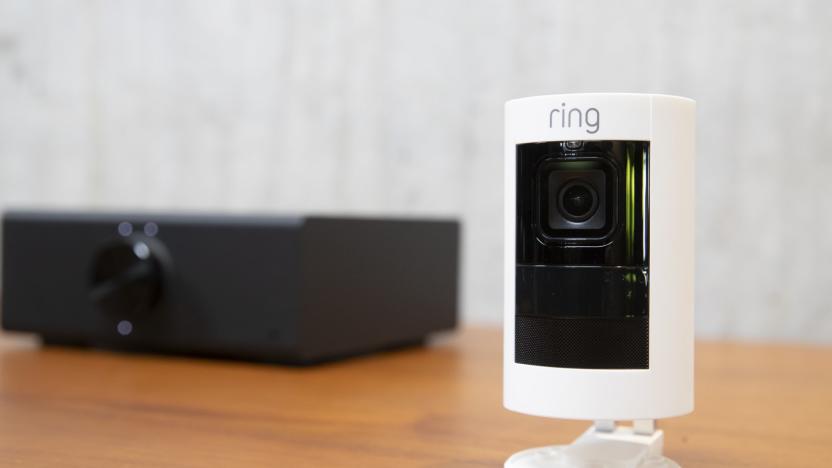
Amazon asks police to advertise Ring cameras as part of partnerships
Amazon's fondness for surveillance camera technology apparently includes programs that ask homeowners to volunteer their own cameras. Motherboard has learned that Amazon has partnerships with US police departments that have law enforcement agencies advertising Ring cameras in return for free giveaway units and an anonymized portal where they can request footage directly from homes. While it's not as clandestine as it appears (more on this in a bit), there are worries the two sides are working too closely and encouraging locals to compromise their privacy.

FBI and ICE use DMV photos as 'gold mine' for facial recognition data
Cities and companies might be turning away from facial recognition, but federal agents are embracing it -- whether or not the public is fully aware of what's happening. Georgetown Law researchers and the Washington Post have discovered that FBI and ICE investigators have been using state DMVs as a "gold mine" for facial recognition data, scanning hundreds of millions of photos to create an unofficial surveillance infrastructure. Officers routinely use the info to help track down suspects in "low-level" crimes like petty theft, and they use it frequently -- the FBI by itself conducts 4,000 facial recognition searches per month.
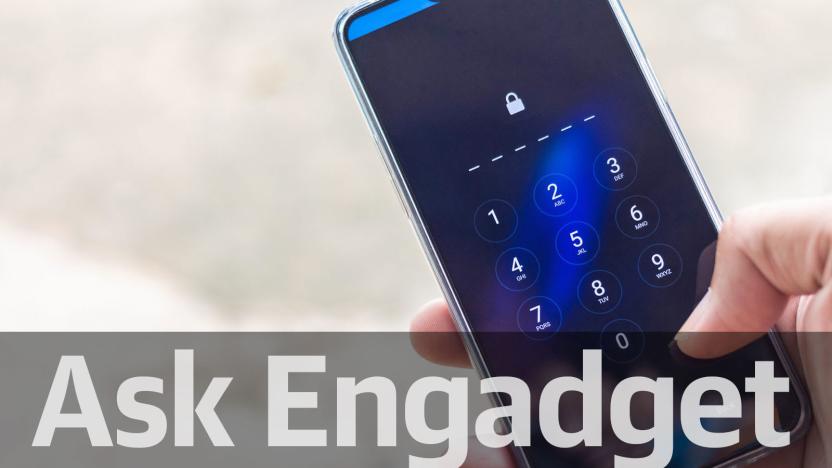
Ask Engadget: Can the police make me unlock my smartphone?
The support shared among readers in the comments section is one of the things we love most about the Engadget community. Over the years, we've known you to offer sage advice on everything from Chromecasts and cameras to drones and smartphones. In fact, our community's knowledge and insights are a reason why many of you participate in the comments. We truly value the time and detail you all spend in responding to questions from your fellow tech-obsessed commenters, which is why we've decided to bring back our "Ask Engadget" column. This week's question concerns the legal side of technology. Weigh in with your advice in the comments -- and feel free to send your own questions along to ask@engadget.com! What are my rights (as a US citizen) if the police ever ask me to unlock my phone?

Sex, lies, and surveillance: Something's wrong with the war on sex trafficking
Silicon Valley's biggest companies have partnered with a single organization to fight sex trafficking -- one that maintains a data collection pipeline, is partnered with Palantir, and helps law enforcement profile and track sex workers without their consent. Major websites like Facebook, Twitter, Snapchat and others are working with a nonprofit called Thorn ("digital defenders of children") and, perhaps predictably, its methods are dubious.

Botched update crashes hundreds of Netherlands police ankle monitors
Mangled software updates are a headache for everyday users, but they created serious trouble for Dutch law enforcement in recent days. Officials have revealed that a software update created a "disruption" for hundreds of ankle monitors used to track bail releases and house arrests, leaving police without a way to locate suspects and criminals. The issue was fixed hours after it began on May 9th, but it lasted long enough that officers had to check in with wearers and even preemptively arrest some of them to ensure they stayed put.
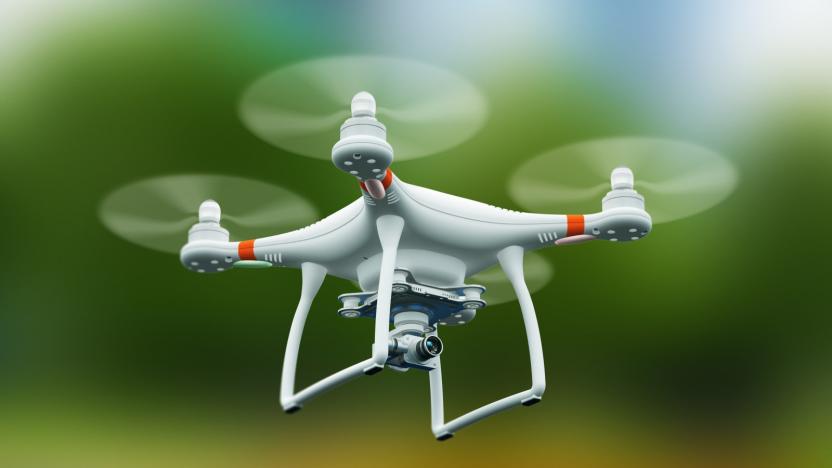
Senators urge FAA to complete remote drone identification rules
There's no question that drone sightings can be disruptive. In December, a drone spotted at Gatwick Airport in London led to the grounding and diversion of hundreds of flights, and similar disruptions have happened at Dubai International Airport and Newark Liberty International Airport. With those incidents in mind -- as well as a flyover of Fenway Park -- Senators Edward Markey (D-Mass.) and John Thune (R-SD) are calling on the Federal Aviation Admission (FAA) to complete guidelines on remote drone identification.
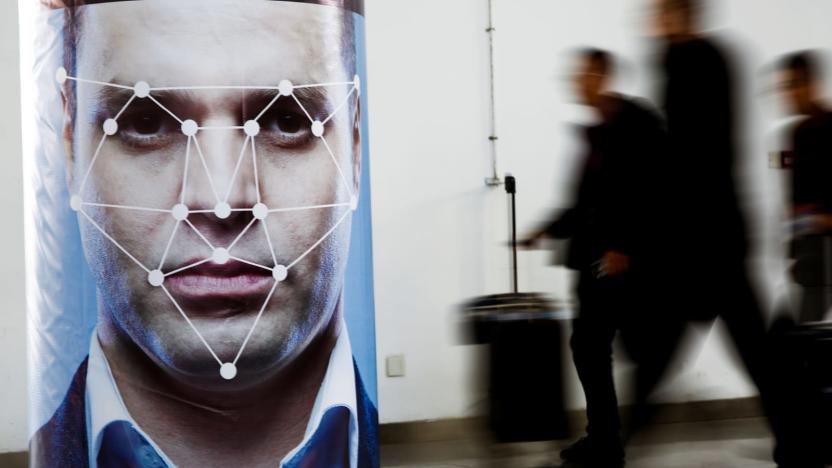
Microsoft didn't want to sell its facial recognition tech to California police
When it comes to facial recognition, it seems Microsoft truly has been trying to do good. Company president Brad Smith has revealed that the tech giant recently turned down a request from law enforcement to equip officers' cars and body cameras with face recognition tech. The California department apparently wanted to run a scan every time an officer pulls anyone over.

Google faces surge in police requests for mobile location data
It's clearer than ever that police see smartphones as treasure troves of evidence. New York Times sources understand that law enforcement requests for information from Google's mobile Location History database, known internally as Sensorvault, have "risen sharply" in the last six months. While the exact volume isn't apparent, there have been "as many as 180 requests" in a single week. In some cases, the demands are particularly broad and may scoop up data from "hundreds" of phones, albeit with limits.

China says it cloned a police dog to speed up training
It can be costly and time-consuming to train police dogs when each candidate might have different skills and personalities. China's solution? Make copies of the best-performing dogs. The state-backed China Daily reports that the city of Kunming, the Yunnan Agricultural University and Beijing Sinogene Biotechnology are about to train Kunxun, a two-month-old Kunming wolfdog cloned from a "great" canine detective. The aim, as you might guess, is to save time and money -- they'll know that Kunxun is more likely to learn quickly and perform well.
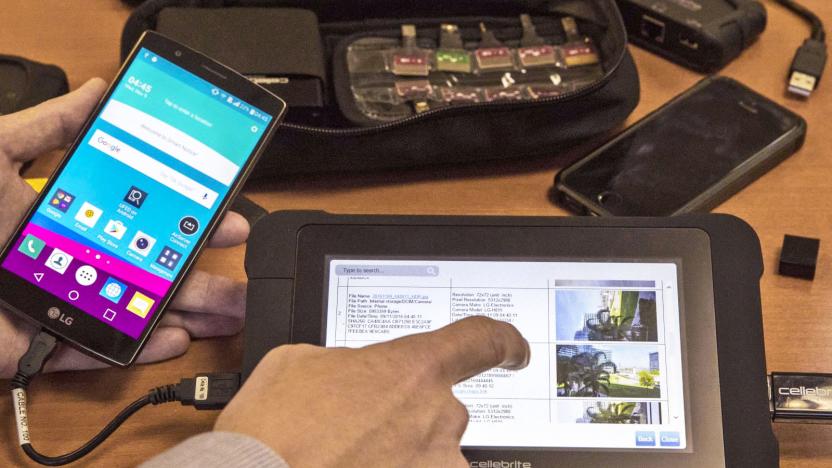
Phone-hacking device used by police sells on eBay for $100
A phone-hacking device that law enforcement officials use to extract data from phones is popping up on eBay for as little as $100. Federal agencies in the US and elsewhere, including the FBI and Department of Homeland Security, typically spend up to $15,000 on current models of Cellebrite's Universal Forensic Extraction Device, though older versions are available on the secondary market.

The Engadget Podcast Ep 16: Feds Watching
Managing editor Dana Wollman and senior editor Devindra Hardawar join host Terrence O'Brien to talk about the week's biggest tech news, including Nike's new self-lacing shoes, Netlix's offline mode and "yelfies." Then they'll rant about what's been bother them this week, whether that's DirecTV, crappy touchpads or Amazon's convoluted pile of apps. Lastly they'll try to unravel the complicated mess that is Rule 41 and what it means for privacy in America.

Apple logs your iMessage contacts and could share them with police
Apple's iMessage had a few security holes in March and April that potentially leaked photos and contacts, respectively. Though quickly patched, they are a reminder that the company faces a never-ending arms race to shore up its security to keep malicious hackers and government agencies out. But that doesn't mean they will always be able to keep it private. A report from The Intercept states that iMessage conversation metadata gets logged in Apple's servers, which the company could be compelled to turn over to law enforcement by court order. While the content of those messages remains encrypted and out of the police's hands, these records list time, date, frequency of contact and limited location information.

ICYMI: Pot breathalyzer, VR for pharaoh's tomb and more
#fivemin-widget-blogsmith-image-979940{display:none;} .cke_show_borders #fivemin-widget-blogsmith-image-979940, #postcontentcontainer #fivemin-widget-blogsmith-image-979940{width:570px;display:block;} try{document.getElementById("fivemin-widget-blogsmith-image-979940").style.display="none";}catch(e){}Today on In Case You Missed It: A prototype marijuana breathalyzer came out and oh lord, the glory days are over. NASA's New Horizons spacecraft got the best ever photos of Pluto and these scientists are adorably jacked up about it. And a Swiss motion capture company wants to put sensors and VR headsets together in museum settings to let people explore an ancient Egyptian tomb.

AZ town hides license plate readers in dozens of fake cacti
City officials from Paradise Valley, Arizona have reportedly set up an array of license plate readers, hidden within fake cacti no less, throughout the wealthy Phoenix suburb. Problem is, officials can't seem to explain if the devices are currently in use or why they even need the privacy-invading technology ion the first place. Fox 10 News broke the story earlier this week after residents began noticing that many of the town's cell-phone towers (disguised as cacti to blend into the surrounding scenery) were suddenly sporting the new plate readers. These readers scan the license plates of passing vehicles and compare them against a database of stolen and missing vehicles. If the plate matches an entry in the database, the device alerts authorities who then investigate.

The NYPD is trying a more precise gunshot detection system
Zeroing in on the precise source of gunfire is next to impossible in densely packed cities like New York City. Shots reverberate off of building facades, obscuring the shooter's location and costing law enforcement precious response time. But with a newly installed gunshot detection system, the NYPD will know exactly where those shots are coming from.

Police cars that make sure cops don't break the law are coming in 2015
According to at least one study, observing police officers on the job leads to a massive decrease in citizens making brutality complaints. Now that same philosophy is being taken with how officers drive their cars while on the job. Ford, makers of various Police Interceptor models, has developed a system that relays telematics of driver behavior directly back to HQ, presumably for a heavy-set officer to scream at them when they get back. The system, designed in partnership with Telogis, monitors if drivers are flashing their sirens to get through red lights, driving over 110mph and even if they're not wearing a seatbelt. As much as this is designed to protect the public, it's also received acclaim from the police's own memorial charity, since automobile accidents have been the biggest cause of fatalities for the bulk of the last 15 years. According to Autoblog, the LAPD is already considering a purchase, which can only be a good thing, right?

Apple's new privacy policy locks out law enforcement, but not completely
Privacy issues have come to forefront of the tech world thanks to recent controversies over how corporations share our information with the government. In December of 2013, Apple formally denied working with the NSA to help spy on the phones of iPhone users, but worries remain among some users that their devices aren't secure from various forms of law enforcement. Apple's new privacy policy should put an end to those worries, thanks to both changes in its security practices and statistics released by the company about how often information is requisitioned by law enforcement. If you're worried about security, Apple's answer is to install iOS 8. Under iOS 8, all of your information is locked behind your personal passcode. Unlike manufacturers of Android devices, Apple is unable to bypass your passcode and access your device, putting the company in an ideal situation for denying search warrants for your information. Apple claims that with iOS 8 it is technically impossible for the company to comply with government warrants to data extraction without your personal passcode. Of course, better security isn't absolute security; Apple is still required by law to turn over user data that is stored on services such as iCloud with a proper subpoena. Backups of photos, emails, and more can be requested by law enforcement if they're stored on your iCloud account rather than your device. Third party apps that store information in the cloud will have their own rules about sharing information. Apple's privacy policy also doesn't address the possibility of the police using other methods to access your device. If authorities are already in possession of your device, there's nothing to stop them from entering random passwords in an attempt to guess yours. If you're honestly worried about someone cracking your phone, make sure you use a strong customized password or use Touch ID, and be sure to Settings > Touch ID & Passcode > Erase Data to enabled -- that will erase data on your device after 10 failed passcode attempts. Jonathan Zdziarski, a professional forensic scientist and iOS application penetration testing consultant has put together a comprehensive article naming the ways law enforcement can work around your security if they have your device. If you're looking for an extra layer of security for any reason, it's well worth a read. Apple's new privacy guidelines are a step in the right direction of putting the concerns of its users first. Just remember, even if Apple can't give the authorities your information, there are always ways around it. Make sure you have your bases covered if you're worried.

Uber driver takes passengers on a 10-minute car chase through Washington D.C.
We've had enough trips in taxis, buses, shuttles, Ubers and Lyfts to last a lifetime, but none like the one Ryan Simonetti apparently went on yesterday. The Washington Post reports that Simonetti is the CEO of Convene and was in town on business, preparing to head back to a company office in the area Tuesday afternoon. A self-described "diehard Uber fan," he booked a trip but when they went to the car there was a D.C. Taxi Inspector discussing something with the driver. As the ride started, the inspector followed, and turned on his lights. The driver told Simonetti "I'm sorry, we're going to have to run this red light" before take off down I-395, resisting the rider's calls to stop, saying he would get a $2,000 fine. After an eight to ten-minute chase at "well above the speed limit," Simonetti's threats finally convinced the driver to let them off at an exit ramp, before he took off the wrong way on that ramp and escaped into Virginia.

"Activation Lock" in iOS 7 responsible for pronounced decrease in iPhone thefts, lawmakers say
The "Activation Lock" feature Apple introduced in iOS 7 is already having a discernible impact on crime, according to law enforcement officials in a few major cities. If you recall, Activation Lock prevents would-be thieves from turning off "Find my iPhone" without first entering the appropriate iCloud credentials. What's more, even if a thief wipes a device clean, reactivating the device requires the original device owner's credentials. The end result? The iPhone remains a popular device for consumers, but not so much for thieves. The New York Times reports: Police officers in San Francisco and London say that after Apple introduced its measure, called Activation Lock, last fall, iPhone theft fell significantly. Comparing data in the six months before and after Apple released the feature, the police said iPhone robberies in San Francisco dropped 38 percent, and those in London fell 24 percent. The police in New York said that robberies involving Apple products dropped 19 percent and those involving grand larcenies dropped 29 percent in the first five months of 2014, compared with the same time period from 2013. In recent years, Apple has slowly but steadily added multiple security layers to iOS in case a device is lost or stolen. One of the more recent enhancements was the introduction of Touch ID on the iPhone 5s last Fall. Looking ahead, iOS 8 will give iPhone and iPad users even more piece of mind with a new feature called "Send Last Location." As the name implies, the feature will automatically send the last known location of an iPhone to Apple when the battery level reaches a critical level.













